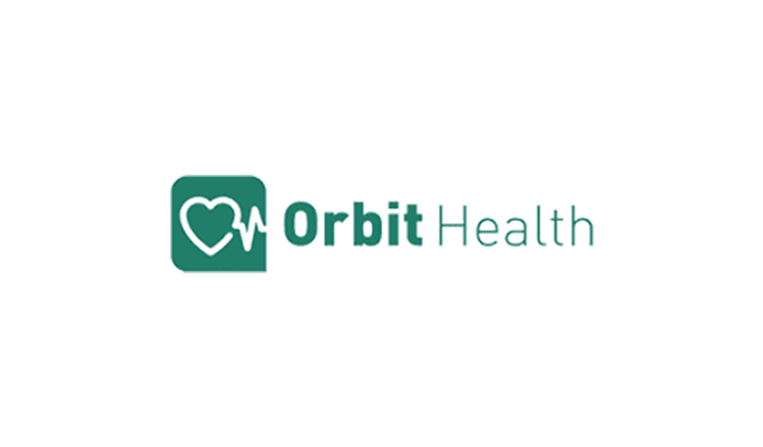
Jun 17 , 2023
By BEMNET TAFESSE ( FORTUNE STAFF WRITER. )
A revised draft regulation from the Ethiopian Food & Drug Administration Authority (EFDA) could see sweeping changes to the advertising practices of brewery companies in Ethiopia. The proposed regulation aims to outlaw the advertisements and promotion of alcoholic beverages on social media platforms, roadside billboards and sporting arenas, determined to toughen the rules covering health warnings and age restrictions in promotion materials.
Despite the broad sweep of the proposed regulations, the dialogue between the Authority, legal experts, and the brewery companies is far from over. As breweries prepare for a potential sea change in the marketing landscape, industry insiders call for regulations that balance protecting public health and ensuring the economic viability of a significant industry. The exact impacts of this legislation, should it come to pass, will only be seen in the coming days.
The Authority’s officials have argued that the real motivation behind these new regulations is to control the safety of food products better and fight the harmful effects of alcohol and tobacco. They hope the revised legislation will enhance the effectiveness of a law passed in 2019, banning the promotion of alcoholic beverages on broadcasting outlets.
Fireselam Fikre, the Authority’s legal department head, noted that the bill has been in the works for several years. Throughout this period, numerous meetings have been held to allow brewery companies to provide their input and feedback on the proposed regulations.
“Two brewery companies have submitted their comments,” Fireselam told Fortune.
The most recent meeting, held two weeks ago, centred on a newly proposed restriction on brewery advertisements on social media platforms. The bill will be sent to the Ministry of Health for further review.
However, the draft regulation has drawn criticism from industry representatives.
The brewery industry, which has roots dating back to the 1920s, has seen significant changes over the past century. Initially, the government controlled most of the brewery companies. However, the late 1990s saw the entrance of foreign companies, such as Castel Group and Heineken, with extensive marketing strategies and substantial financial backing. These entities sought to establish a firm foothold in the burgeoning Ethiopian market.
BGI Ethiopia, a subsidiary of the international beverage and brewery production company Castel Group, entered the Ethiopian market in the late 1990s after acquiring the state-owned St. George Brewery. With operations in over 53 countries, the Group has acquired five brewery companies under the BGI-Ethiopia umbrella. Its executives participated in the recent consultation meetings over the revised regulation.
Nega Mihrete, BGI-Ethiopia’s legal and corporate affairs director, fears the restrictions in the proposed regulation could effectively kill the brewery business.
He argued that the substantial revenue contributions of breweries, which rank among Ethiopia’s top taxpayers, have not been adequately considered by the regulation's authors. Nega believes that an enabling environment should be provided for beverage companies to promote and sell their brands while balancing public health considerations with the need for economic development.
Several advertising companies shifted their focus to digital platforms, away from the traditional broadcasting services, following the law Parliament enacted four years ago wholly banning the promotions of alcoholic drinks on radio and television broadcasts. They tried to capitalise on Ethiopia’s 20.86 million internet users.
The draft regulation in the bureaucratic grail, which aims to restrict online promotional activities, is causing concern among these businesses, already facing challenges posed by restrictions and the use of Virtual Private Networks (VPN).
Berry Advertisement, a local company with a decade of experience in the promotion sector, is one of the firms the regulation may significantly impact. Its portfolio includes several breweries and notable campaigns, such as the Dashen Beer promotion featuring players from Arsenal Football Club.
“The fierce competition and high production standards of foreign companies push us to the limits,” the company’s CEO, Melaku Beharu, told Fortune.
Melaku says his company has already felt the impact of the 2019 law, with a prospect of losing up to 70pc of the annual revenues breweries generate for Berry Advertisement.
Melaku fears that if the draft regulation is passed by the Council of Ministers and signed by the Prime Minister, his company could see an annual loss of up to 120 million Br.
Breweries that sponsor sports teams, such as Habesha Brewery, the exclusive sponsor for the Ethiopian Coffee Sport Club, are also bracing for these changes. The Club plans to shift the current sponsorship from Habesha Beer to a malt drink produced by the same bottler.
Meaza Haile, head of the legal department at Habesha Breweries, disclosed they are closely following the development despite declining to comment further.
“There’ll be changes in our marketing strategies,” she told Fortune.
Despite the ongoing developments, an industry insider with over 12 years of experience in marketing and promoting brewery products has warned against the potential side effects of the proposed regulations. A total ban on promoting alcoholic products might lead companies to lower their product prices, offsetting cutbacks in promotional spending, according to him.
Such executive actions, he argued, should be constructed in a way that primarily aims to protect vulnerable demographics like children rather than completely prohibiting the public promotion of such products legally permitted. He cited marketing case studies from the United Kingdom to support his argument.
The proposed regulations, however, have found support in legal circles.
Minase Hailu, a lawyer, applauded the restrictions in the draft regulation, arguing that the actions are within the powers vested in the Authority by the legislation, including its mandate to regulate when and where alcohol can be sold.
“Social media platforms are rapidly becoming a principal means of connectivity, even surpassing the reach of the mainstream media,” Minase told Fortune.
PUBLISHED ON
Jun 17,2023 [ VOL
24 , NO
1207]

Covid-19 | Jun 13,2020


Commentaries | May 18,2019

Fortune News | Jan 16,2021

Fortune News | Feb 22,2020

Fortune News | Jul 03,2021

Radar | Sep 10,2021

Fortune News | Aug 19,2023

Fortune News | Apr 20,2019

Editorial | Jul 07,2024

Dec 22 , 2024 . By TIZITA SHEWAFERAW
Charged with transforming colossal state-owned enterprises into modern and competitiv...

Aug 18 , 2024 . By AKSAH ITALO
Although predictable Yonas Zerihun's job in the ride-hailing service is not immune to...

Jul 28 , 2024 . By TIZITA SHEWAFERAW
Unhabitual, perhaps too many, Samuel Gebreyohannes, 38, used to occasionally enjoy a couple of beers at breakfast. However, he recently swit...

Jul 13 , 2024 . By AKSAH ITALO
Investors who rely on tractors, trucks, and field vehicles for commuting, transporting commodities, and f...

Jul 12 , 2025
Political leaders and their policy advisors often promise great leaps forward, yet th...

Jul 5 , 2025
Six years ago, Ethiopia was the darling of international liberal commentators. A year...

Jun 28 , 2025
Meseret Damtie, the assertive auditor general, has never been shy about naming names...

Jun 21 , 2025
A well-worn adage says, “Budget is not destiny, but it is direction.” Examining t...